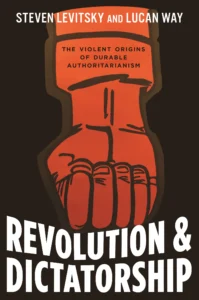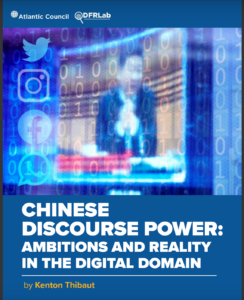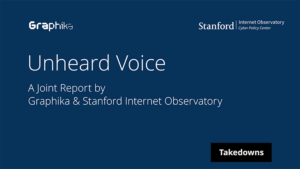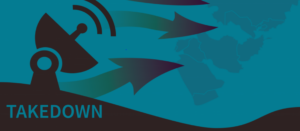 Why do dictatorships emerging from social revolutions endure, even in the face of economic crisis, policy failure, mass discontent, and external pressure?
Why do dictatorships emerging from social revolutions endure, even in the face of economic crisis, policy failure, mass discontent, and external pressure?
In Revolution and Dictatorship, Steven Levitsky and Lucan Way explore why regimes such as those in China, Cuba, Iran, and the Soviet Union have survived in the face of such challenges, arguing that radical efforts to transform the social and geopolitical order trigger intense counterrevolutionary conflict, which initially threatens regime survival, but ultimately fosters the unity and state-building that supports authoritarianism, Princeton University Press observes:
Although most revolutionary governments begin weak, they challenge powerful domestic and foreign actors, often bringing about civil or external wars. These counterrevolutionary wars pose a threat that can destroy new regimes, as in the cases of Afghanistan and Cambodia. Among regimes that survive, however, prolonged conflicts give rise to a cohesive ruling elite and a powerful and loyal coercive apparatus. This leads to the downfall of rival organizations and alternative centers of power, such as armies, churches, monarchies, and landowners, and helps to inoculate revolutionary regimes against elite defection, military coups, and mass protest—three principal sources of authoritarian breakdown.
 Autocrats have seized the initiative in the new strategic competition, strengthening their resilience at home while undermining democratic institutions and alliances abroad. Around the world, democratic leadership and values appear to be in retreat, according to a recent report.
Autocrats have seized the initiative in the new strategic competition, strengthening their resilience at home while undermining democratic institutions and alliances abroad. Around the world, democratic leadership and values appear to be in retreat, according to a recent report.
Fortunately, democracies maintain essential advantages in each domain of this competition, including responsive political systems, innovative economies, and open approaches toward
information, Brookings analyst Jessica Brandt writes in Linking Values and Strategy: How Democracies Can Offset Autocratic Advances:
To succeed in this contest, democracies generally, and the United States in particular, must reinvest in these essential sources of their strength, while exposing the weaknesses of their authoritarian challengers. By embracing a national strategy to offset autocrats’ recent advances, the United States can reassert the superiority of the democratic model and repel authoritarian efforts to distort the future world order.
Are democracies finally fighting back?
 A joint investigation by Graphika and Stanford’s Internet Observatory/Cyber Policy Center found an interconnected web of accounts on Twitter, Facebook, Instagram, and five other social media platforms that use “deceptive tactics” to promote pro-Western narratives in the Middle East and Central Asia. The platforms’ datasets appear to cover a series of covert campaigns over a period of almost five years rather than one homogeneous operation, say the authors of Unheard Voice: Evaluating five years of pro-Western covert influence operations.
A joint investigation by Graphika and Stanford’s Internet Observatory/Cyber Policy Center found an interconnected web of accounts on Twitter, Facebook, Instagram, and five other social media platforms that use “deceptive tactics” to promote pro-Western narratives in the Middle East and Central Asia. The platforms’ datasets appear to cover a series of covert campaigns over a period of almost five years rather than one homogeneous operation, say the authors of Unheard Voice: Evaluating five years of pro-Western covert influence operations.
These campaigns consistently advanced narratives promoting the interests of the United States and its allies while opposing autocratic states such as Russia, China, and Iran, the report adds:
The accounts heavily criticized Russia in particular for the deaths of innocent civilians and other atrocities its soldiers committed in pursuit of the Kremlin’s “imperial ambitions” following its invasion of Ukraine in February this year. To promote this and other narratives, the accounts sometimes shared news articles from U.S. government-funded media outlets, such as Voice of America and Radio Free Europe, and links to websites sponsored by the U.S. military. A portion of the activity also promoted anti-extremism messaging. …..
 We believe this activity represents the most extensive case of covert pro-Western IO [information operations] on social media to be reviewed and analyzed by open-source researchers to date. With few exceptions, the study of modern IO has overwhelmingly focused on activity linked to authoritarian regimes in countries such as Russia, China, and Iran, with recent growth in research on the integral role played by private entities. This report illustrates the wider range of actors engaged in active operations to influence online audiences. RTWT
We believe this activity represents the most extensive case of covert pro-Western IO [information operations] on social media to be reviewed and analyzed by open-source researchers to date. With few exceptions, the study of modern IO has overwhelmingly focused on activity linked to authoritarian regimes in countries such as Russia, China, and Iran, with recent growth in research on the integral role played by private entities. This report illustrates the wider range of actors engaged in active operations to influence online audiences. RTWT
Whether it is to change public perceptions of the war in Ukraine or of military drills around Taiwan, Moscow and Beijing have expanded their disinformation playbook by doctoring videos and images, presenting half-truths to depict themselves as victims, and utilizing global networks on social media to push false narratives, the Andrea Mitchell Center for the Study of Democracy adds. In a forthcoming talk, moderated by the University of Pennsylvania’s Mitchell Orenstein, Brandt assesses the current and emerging threats and proposes means of countering them.
Thu, Sep 8, 2022 4:00 PM – 5:30 PM EDT Authoritarian Disinformation: The New Propaganda Playbook’s Global Impacts – RSVP
 Talking of strategic competition…..
Talking of strategic competition…..
The Global Emerging Technology Summit on September 16, 2022, hosted by the Special Competitive Studies Project, will bring together government and private sector leaders for a day of conversations surrounding the emerging technologies that will help advance freedom, strengthen democracies, and protect the rules-based order. Click here to request in-person attendance at the Capitol Hilton or register to attend virtually.







